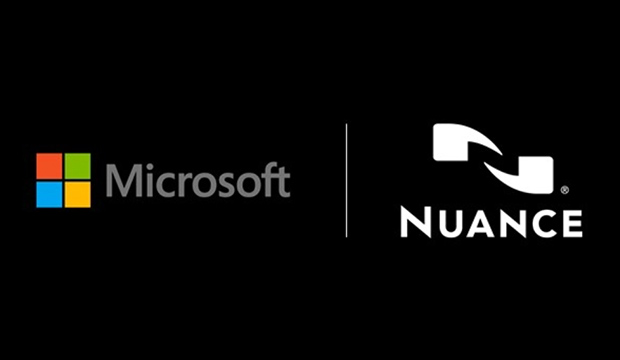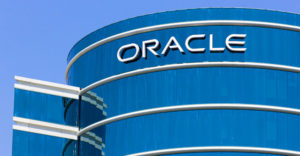Microsoft on Monday announced it is purchasing Nuance Communications, a natural language to computer processing company, in a deal valued at $19.7 billion.
In the all-cash transaction, Microsoft will acquire all of Nuance’s outstanding stock for US$56 a share, a 23 percent premium over the share price at the close of the market last Friday. The deal, which is Microsoft’s largest since it acquired LinkedIn in 2016 for more than $26 billion, is expected to close at the end of the calendar year.
Mark Benjamin will remain CEO of Nuance and report to Scott Guthrie, executive vice president of cloud and artificial intelligence at Microsoft, the Redmond, Wash. company said in a statement.
“Nuance’s popular healthcare-focused products and services will provide Microsoft an instant revenue stream and relationships with existing Nuance customers,” noted Charles King, principal analyst with Pund-IT, a technology advisory firm in Hayward, Calif.
“More importantly,” he told the E-Commerce Times, “Nuance will open the door for Microsoft to sell and upsell other healthcare-related services and solutions.”
According to Microsoft, Nuance solutions are currently used by more than 55 percent of physicians, 75 percent of radiologists, and 77 percent of hospitals in the United States.
In its most recent fiscal year, it continued, which ended in September, Nuance’s Healthcare Cloud revenue showed year-over-year growth of 37 percent.
The acquisition will double Microsoft’s total addressable market in healthcare to nearly $500 billion, the company added.
Playing Catchup
“Nuance provides the AI layer at the healthcare point of delivery and is a pioneer in the real-world application of enterprise AI,” Microsoft CEO Satya Nadella explained in a statement.
“AI is technology’s most important priority, and healthcare is its most urgent application,” he continued. “Together, with our partner ecosystem, we will put advanced AI solutions into the hands of professionals everywhere to drive better decision-making and create more meaningful connections, as we accelerate growth of Microsoft Cloud for Healthcare and Nuance.”
The acquisition will help Microsoft catch up with its cloud rivals, maintained Jack E. Gold, founder and principal analyst at J.Gold Associates, an IT advisory company in Northborough, Mass.
“Microsoft is pretty far behind AWS and Google in natural language processing in the cloud. Microsoft has been a third-place player,” he told the E-Commerce Times.
“Nuance gives Microsoft the ability to attack the enterprise, which is really important to them for Azure, but it also gives them instant credibility because they’re getting a real, natural-language processing system,” he said.
“Rather than develop everything in-house,” he continued, “they needed something to give them a quick kick-start, and Nuance gives them that.”
Looking Beyond Healthcare
While giving Microsoft a mighty presence in healthcare, the Nuance acquisition will give the Redmond crew much more in the future.
“AI Spending will reach $110.7 billion by 2024,” observed Ritu Jyoti, program vice president for the worldwide AI and automation research practice at IDC.
“Banking, retail, manufacturing and healthcare will approach close to more than half of global spend,” he told the E-Commerce Times. “So while initially, Microsoft may be focused in healthcare solutions, longer term its focus will be much broader.”
He explained that beyond healthcare, Nuance provides AI expertise and customer engagement solutions across interactive voice response (IVR), virtual assistants, and digital and biometric solutions to companies around the world across all industries.
“This expertise will come together with the breadth and depth of Microsoft’s cloud,” he said, “including Azure, Teams, and Dynamics 365, to deliver next-generation customer engagement and security solutions.”
Nuance, too, will benefit from being under Microsoft’s wing.
“It expands markets dramatically for Nuance,” Gold said. “It’ll help get it out of its niches. It can be in almost any space with Azure.”
King explained that while Nuance has done well since shifting its focus to healthcare solutions, it appears to have hit the ceiling in terms of business and revenue growth.
“Being part of a far larger and better-funded company, like Microsoft, should [provide] Nuance and its employees a brighter future,” he said.
Key Healthcare Tech
The Nuance acquisition shows not only how important healthcare is to Microsoft, but how important voice recognition technology is to the future of healthcare, maintained Paddy Padmanabhan, founder and CEO of Damo Consulting, a Villa Park, Ill. growth strategy and digital transformation advisory firm that works with healthcare enterprises and global technology companies.
“Voice-enabled healthcare is still in its very, very early stages relative to its potential impact. There is a huge market waiting to be opened up,” he said in a statement.
“Conversation AI tools such as that of Nuance have started making a big difference in ambient clinical computing, specifically in the transcription of doctor-patient encounters,” he observed.
“The next stage of growth for voice will be in clinical decision support, enabled by stronger integration with EHR systems, that will take the form of AI-enabled functions that will improve the quality of the patient experience and outcomes,” Padmanabhan added.
He explained that as digital transformation accelerates, the use of emerging technologies such as voice will drive care delivery in the hospital and in the home.
“Amazon has already made significant moves in home-based care which include its voice-enabled Alexa services as a central component,” he noted. “Microsoft’s Cortana offering hasn’t made as much of a mark as Alexa in the healthcare context.”
“Microsoft had to make a move to meet the competition head on, and the Nuance acquisition may be the best bet it can make at this time,” he continued.
“The field has essentially now narrowed down to two players in the voice-enabled healthcare delivery space,” he added.
Next-Gen Interface
The Nuance acquisition also reveals the role of conversational AI in Microsoft’s roadmap for the future.
Lian Jye Su, artificial intelligence and machine learning principal analyst at ABI Research, explained in a statement that Microsoft has attempted to bolster its own conversational AI both through in-house development with Cortana and through acquisition by buying Semantic Machines in 2018.
“However, all these have yet to allow Microsoft to replicate the success of Amazon, Google, and Apple in the consumer space and IBM in the enterprise space,” he asserted.
Su added that Microsoft is also feeling the threat from the conversational AI capabilities demonstrated by AI players in China, such as Alibaba, Baidu, iFlyTek, Mobvoi, Zhuiyi, and Unisound.
“The acquisition of Nuance Communications will elevate Microsoft’s capabilities and allow Microsoft to develop both consumer- and enterprise-focused conversational AI solutions,” he said.
He added that Microsoft’s move also acknowledges the importance of conversational AI and natural language processing capabilities to the future of AI.
“This announcement validates the efforts of many natural language processing hardware and software startups,” he observed. “As the market slowly matures, voice command and control have the potential to replace touch control in many use cases and become the main interaction method for the next-generation user interface.”























































